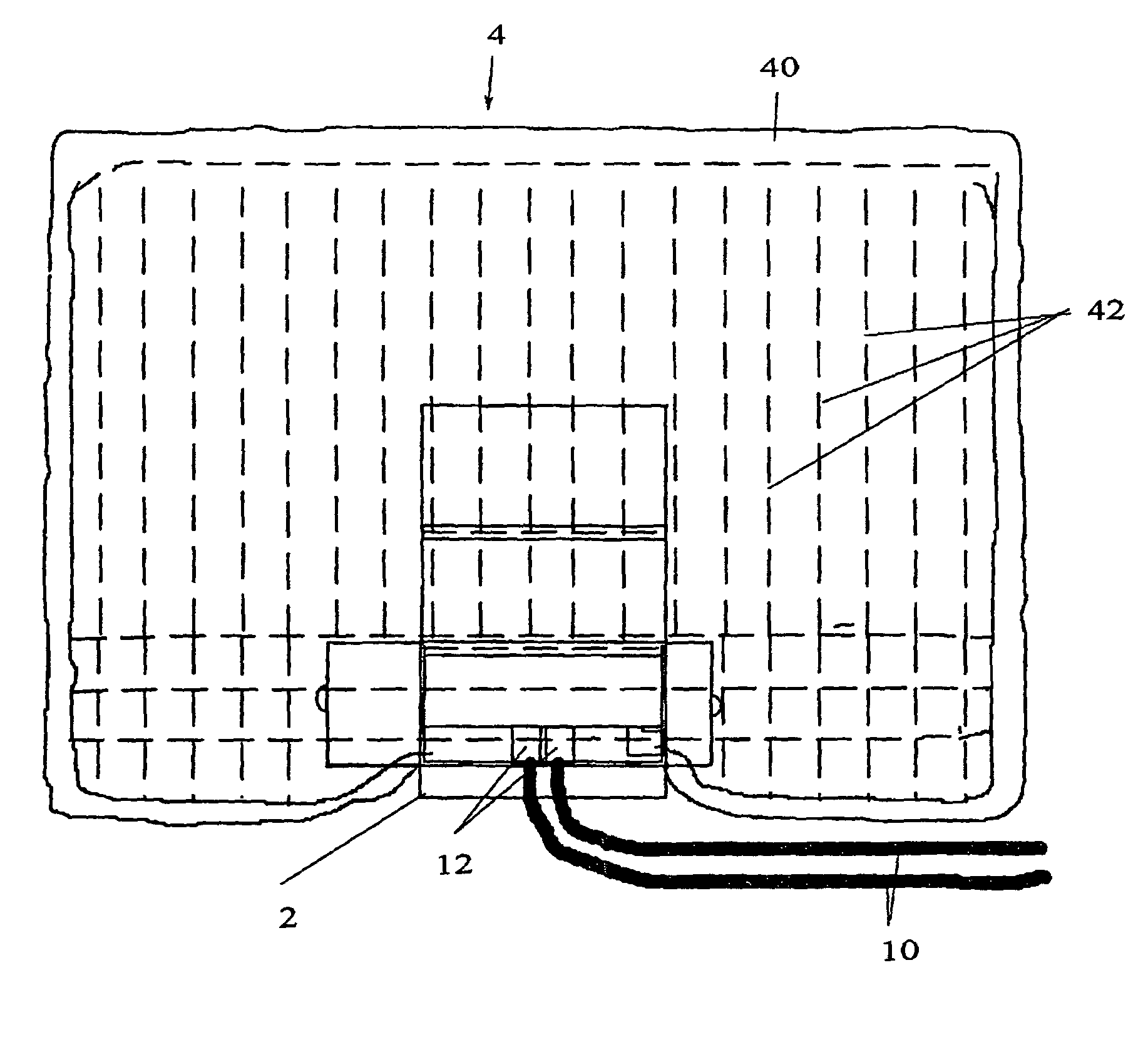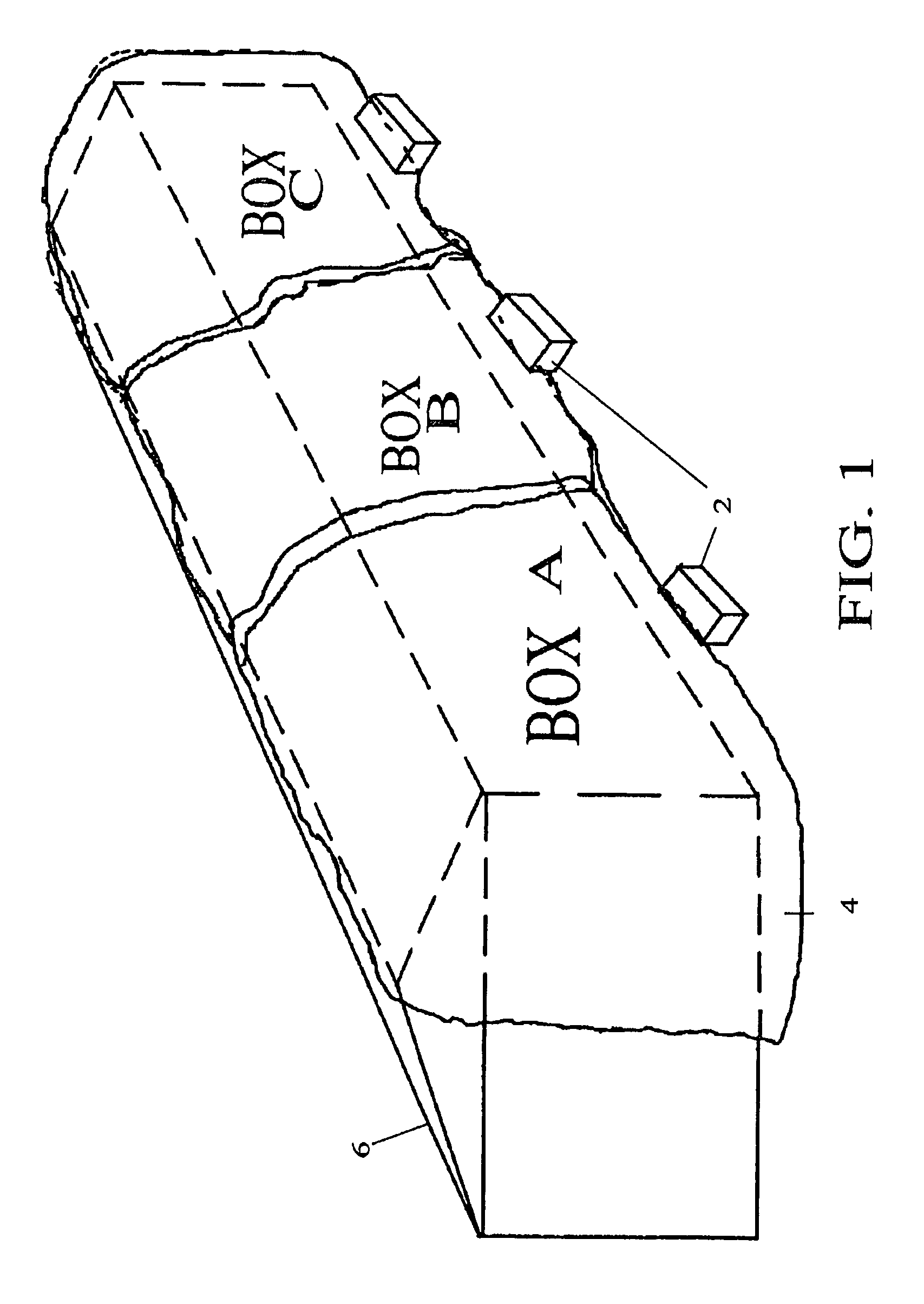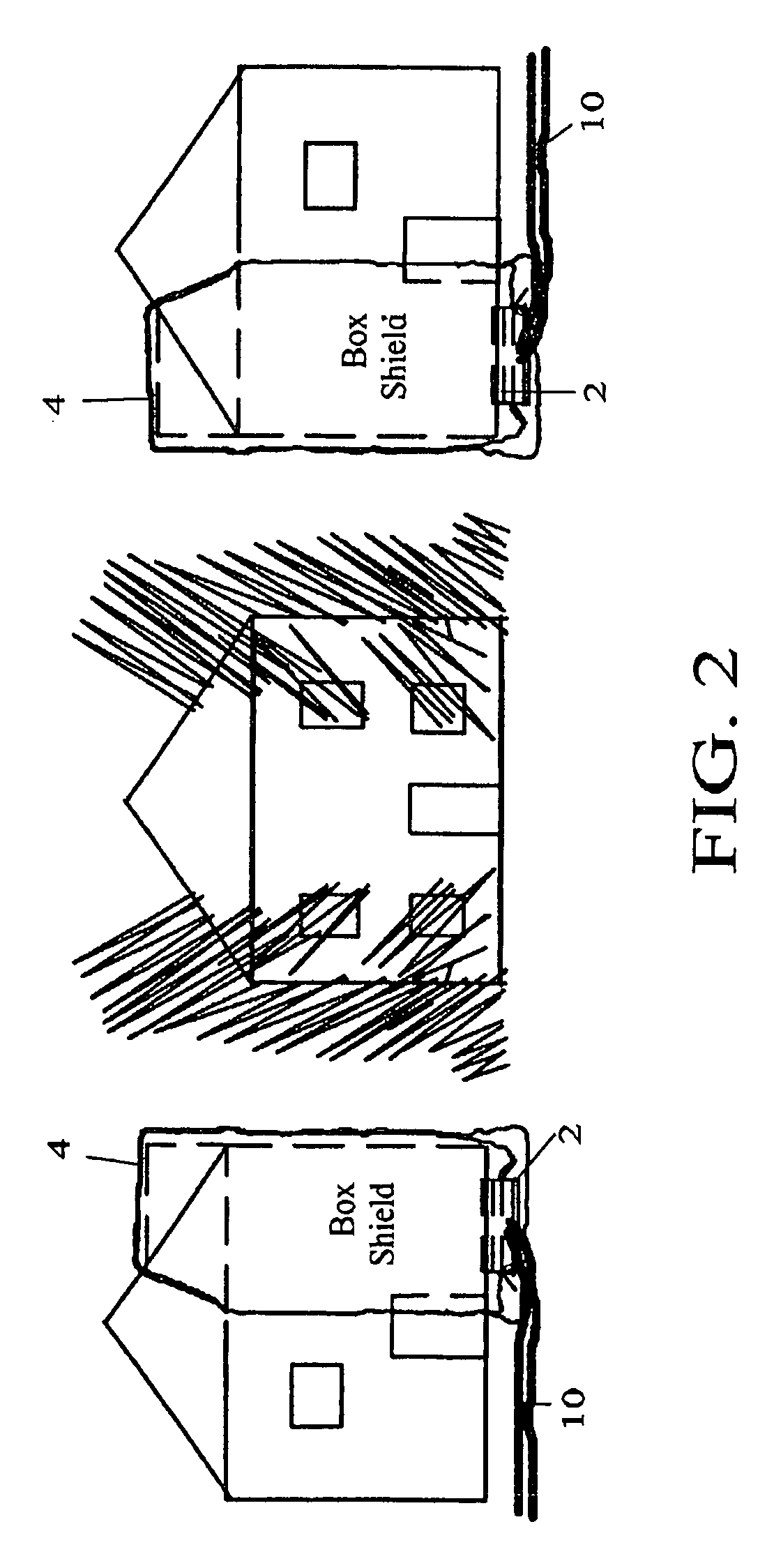Inflatable protective home barrier
a protective barrier and home technology, applied in the field of fire protection systems, can solve the problems of inability to provide service, large risk of forest fire spreading from home to home, and insufficient size of larger fires, and achieve the effect of rapid deployment and ample protection from fires
- Summary
- Abstract
- Description
- Claims
- Application Information
AI Technical Summary
Benefits of technology
Problems solved by technology
Method used
Image
Examples
Embodiment Construction
[0031]The present invention is a system for protecting residential houses or buildings from a wildfire or any neighboring fire in a proximate area by rapid deployment of an inflatable structure supporting a fire-resistant fabric covering that expands to substantially enshroud a home or building when confronted with an approaching fire. The inflatable structure is deployed out of a storage case by administering pressurized air to the storage case. The inflatable structures are modular, allowing use of a plurality of same in an overlapping manner to protect larger structures.
[0032]FIG. 1 is a perspective view of the system for protecting residential houses according to the present invention, which operates by rapid inflatable deployment of an inflatable structure including a fire-resistant fabric shroud 4 that expands by inflation to form a box-shield that substantially covers at least one side of a home or building 6 when confronted with an approaching fire. Each inflatable structure...
PUM
 Login to View More
Login to View More Abstract
Description
Claims
Application Information
 Login to View More
Login to View More - R&D
- Intellectual Property
- Life Sciences
- Materials
- Tech Scout
- Unparalleled Data Quality
- Higher Quality Content
- 60% Fewer Hallucinations
Browse by: Latest US Patents, China's latest patents, Technical Efficacy Thesaurus, Application Domain, Technology Topic, Popular Technical Reports.
© 2025 PatSnap. All rights reserved.Legal|Privacy policy|Modern Slavery Act Transparency Statement|Sitemap|About US| Contact US: help@patsnap.com



